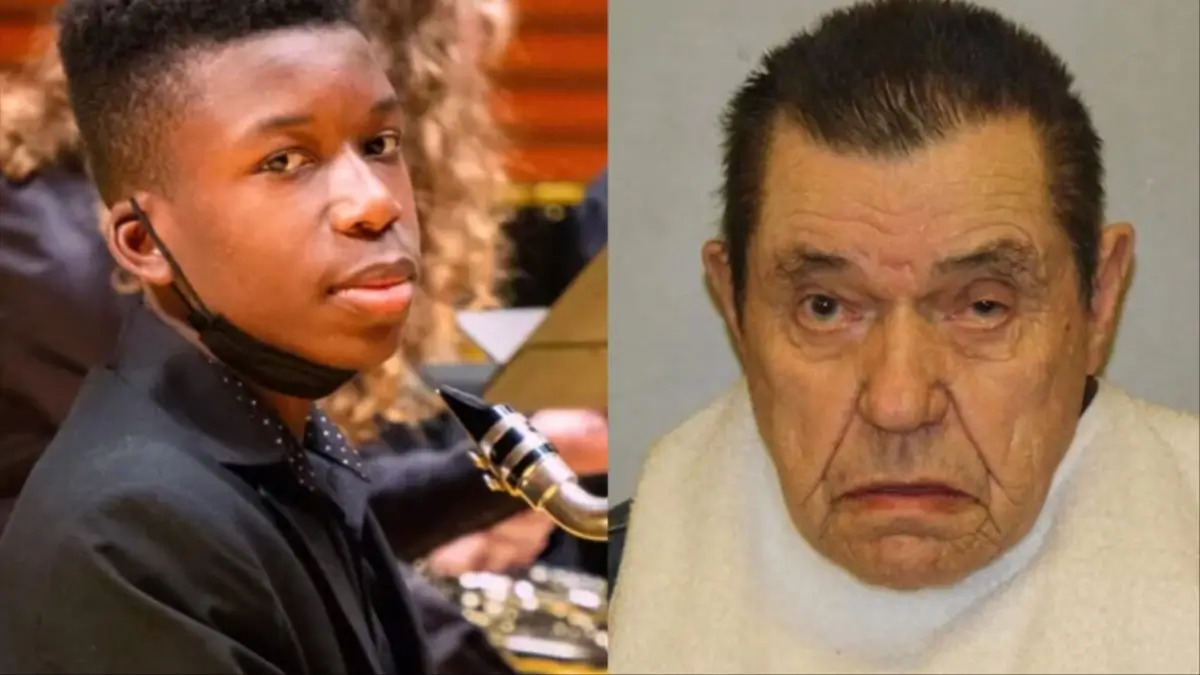The Kansas City teen who was shot at point-blank range after ringing the wrong doorbell should not be classified as a victim, attorneys representing the shooter argued in court this week.
Ralph Yarl sustained a serious brain injury when he was shot twice by an elderly man who told police he feared for his life when the 16-year-old rang his doorbell. Yarl, who is Black, had been sent to pick up his twin brothers but got the address wrong.

Nearly two years after the shooting, Yarl still suffers from debilitating migraines, balance issues and mood changes, along with PTSD from the shooting. But Steven Salmon, the attorney for Andrew Lester, the man who shot Yarl, asked the court to stop referring to the teen as a victim because “it violates the accused’s presumption of innocence.”
Lester, who is white, told police he believed Yarl was there to rob him and responded with two shots, striking the teen once in the head and once in the arm. Yarl went to three different homes seeking help before collapsing in the street.
Lester, who is white, faces first-degree assault and armed criminal action charges. The shooting prompted widespread outrage, with many believing the shooting was racially motivated.
The defendant’s ex-wife, grandson and neighbor have all spoken out about Lester’s violent tendencies and racist beliefs.
Mary Clayton, who was married to Lester for 14 years, told The New York Times that he would often have fits of rage in the home she shared with him and three children.
“I was always scared of him,” Clayton said. “It doesn’t surprise me what happened.”
Grandson Klint Ludwig told the Times Lester was immersed in “a 24-hour news cycle of fear and paranoia.”
“And then the NRA pushing the ‘stand your ground’ stuff and that you have to defend your home,” he said. “When I heard what happened, I was appalled and shocked that it transpired, but I didn’t disbelieve that it was true.”
Ludwig said his grandfather was known to make negative comments about Black people, homosexuals and immigrants.
Other family members dispute Lester’s characterization. His nephew Dean Smith said Lester, who was a retired aircraft mechanic, worked with many people of different races.
Lester is claiming self-defense under Missouri’s Castle Doctrine, widely known as the “Stand Your Ground” law. If the jury finds in Lester’s favor, Salmon argues, then Yarl would not be the victim.
“The jury’s job is to determine the facts of the case and from facts whether there is a ‘victim,’” Salmon said. “There cannot be a ‘victim’ unless the jury determines that there was a crime or a wrong committed.”
Legal experts say Salmon’s argument is not unusual. In the case of Kyle Rittenhouse, charged with shooting three people, killing two, during protests in Kenosha, Wisconsin, in 2020, the judge barred the prosecution from referring to those people as “victims.” The judge also ruled that Rittenhouse’s attorneys could present evidence about the victims’ activities, including whether they might have been rioters, as the defense claimed.
“So in that case, the question was: Was Rittenhouse acting in self-defense or the defense of others?” Steve Leben, a professor at the University of Missouri-Kansas City School of Law, said in an interview with The Kansas City Star. “So the real question was: Had a crime been committed?”
Leben said the question for the judge is whether the term “victim” is “so normal to use that it really doesn’t imply and pre-judgement.”
Leben said concerns over whether the word “victim” could contradict the presumption of innocence are legitimate.
“In this trial with self-defense as the key claim by the defense, the jury is going to be focused on whether the elements for self-defense are met,” Leben said. “They are not going to decide the case simply by whether the term ‘victim’ is used.”
Lester, free on bond, is set to go to trial Feb. 24. He faces up to 15 years in prison if found guilty.


